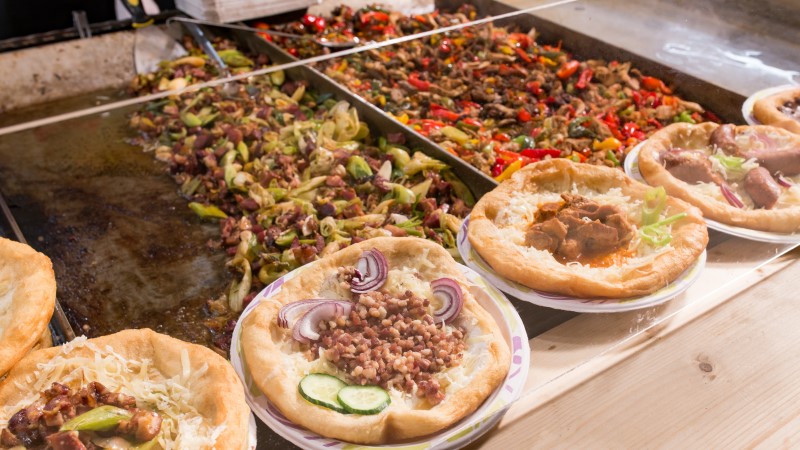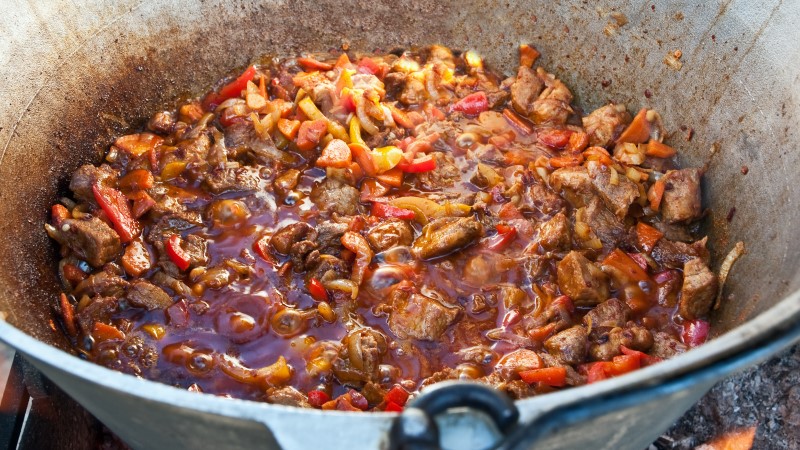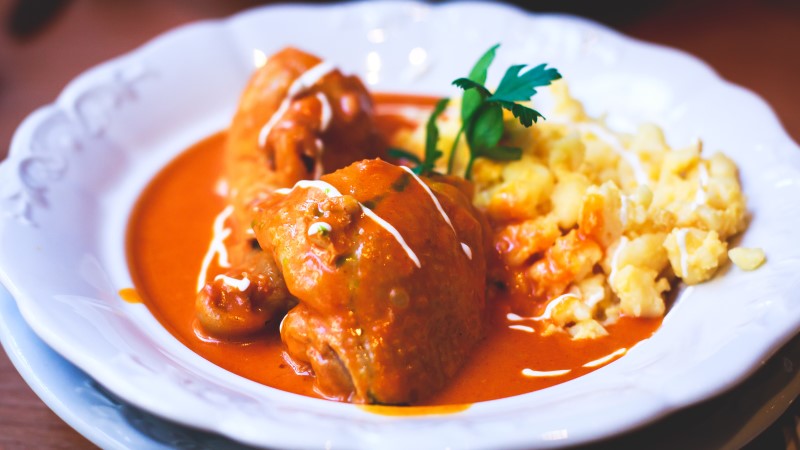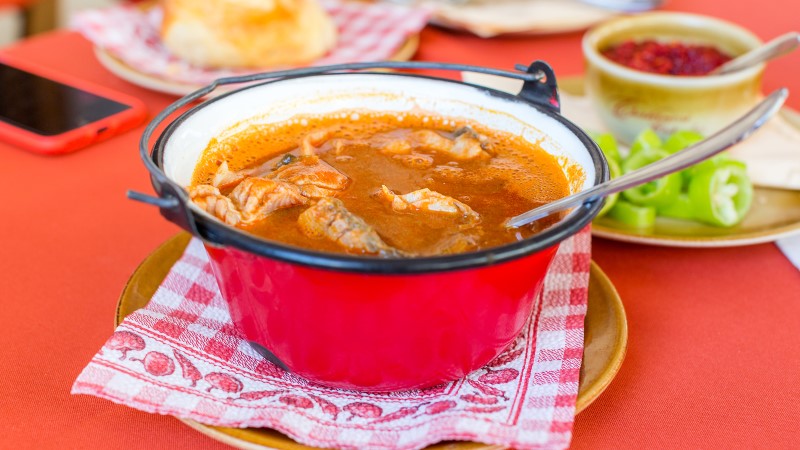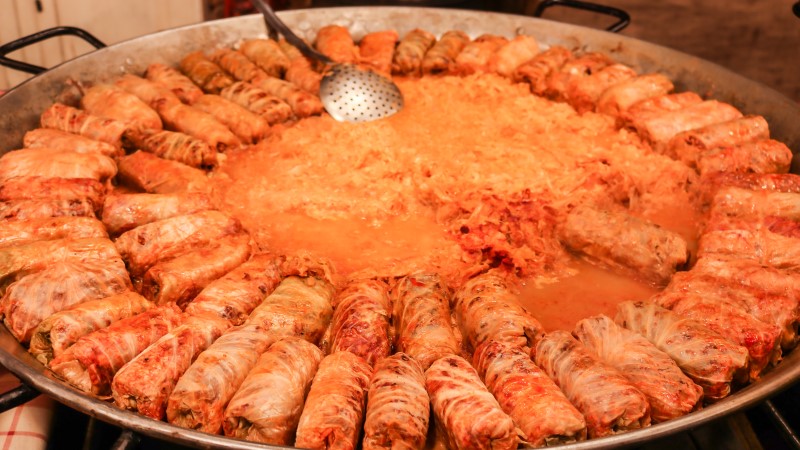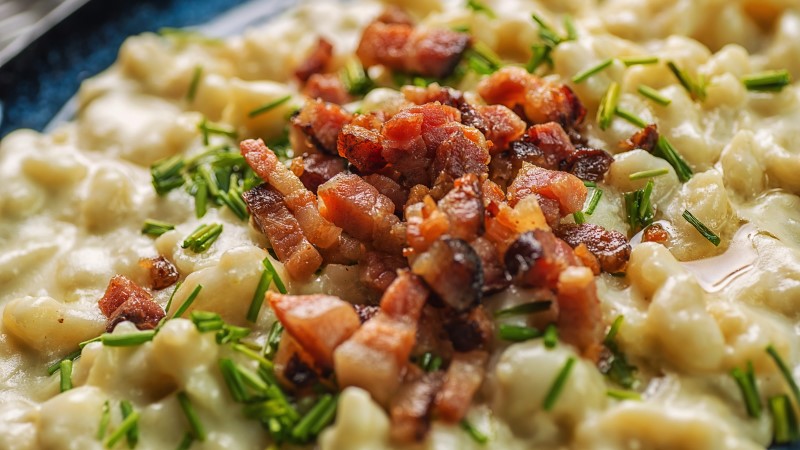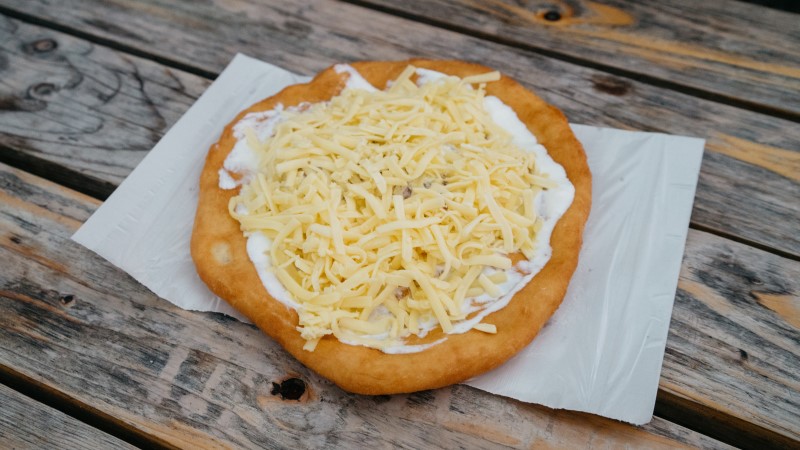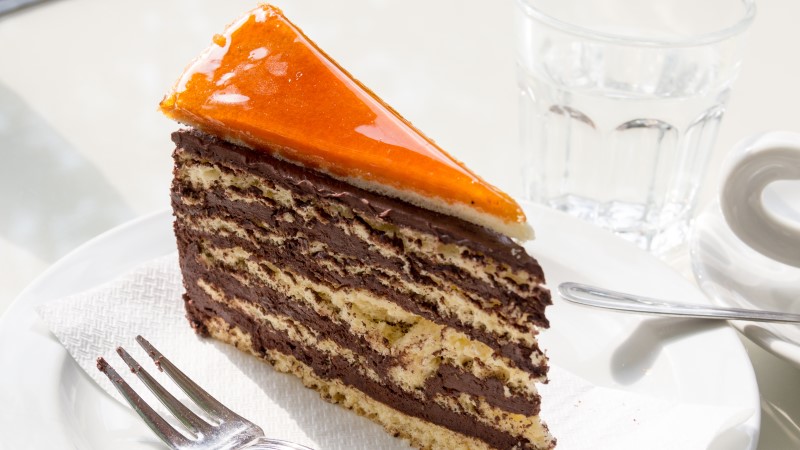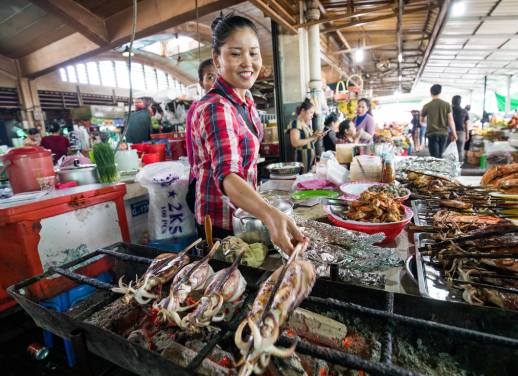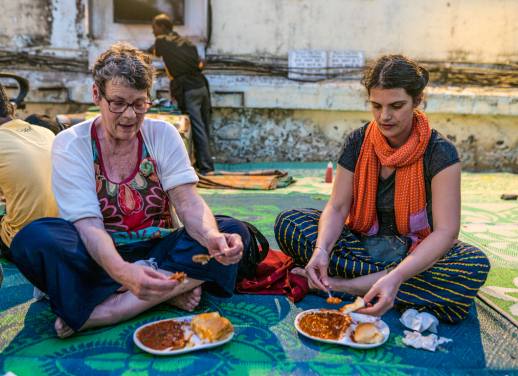If you asked me to describe Hungarian cuisine in four words, it would have to be: good old comfort food. The sort that’s rich and delicious, and leaves you feeling all warm and fuzzy after eating it.
Drawing inspiration from Central and Eastern Europe, Hungarian food goes heavy on the meat and dairy. Oh, and the locals can’t resist a pinch of paprika either, whether sweet or spicy!
To give you a flavour of what Hungary holds, here’s a list of dishes to keep your eyes peeled for…
Gulyás (goulash)
Whilst many of us would say goulash is the most typically Hungarian dish going, you might be surprised to discover the locals don’t actually eat it that much. But that’s not to say you won’t find it on menus across the country. Packed with beef, onions and paprika, this robust stew is often served with nokedli (small Hungarian dumplings). If you’re after something a little lighter, go for goulash soup – crammed with carrots and potatoes, it always comes accompanied by a healthy side of bread.
CYCLE THE DANUBE ON THIS 8-DAY ACTIVE ADVENTURE
Paprikás csirke (chicken paprikash)
As its name suggests chicken paprikash is full of – yep, you guessed it – paprika! Thought to date back several centuries and supposedly dreamt up by a group of farmers from the south, you could liken it to a Hungarian coq au vin. Created by browning meat that is then simmered in a paprika-infused sauce until tender, some recipes add bell peppers and a smidgeon of tomato paste too. There is all manner of variations available from veal and chicken for the meat eaters to mushroom for the veggies.
SUBSCRIBE TO OUR NEWSLETTER FOR ALL THE LATEST NEWS, OFFERS AND TRAVEL TIPS
Halászlé (fisherman’s soup)
Bright red in colour and spicy in flavour, this river fish soup offers a real taste of Hungary. Once cooked over an open fire by fishermen on the banks of the Danube and Tisza rivers, this famous meal is now enjoyed by locals and travellers alike. Made from a medley of freshwater fish like common carp, pike, perch or catfish, it’s then combined with onions, green peppers, tomatoes and plenty of hot paprika. A traditional meal for Christmas Eve dinner, it’s perfect washed down with a glass of crisp white wine.
TRAVEL FROM BUDAPEST TO BUCHAREST ON THIS 10-DAY BREAK
Töltött káposzta (stuffed cabbage leaves)
Labelled the ‘coat of arms of Hungary’ by Déryné, the nation’s first acclaimed female opera singer, back in the 19th century, this meal maintains its popularity today. These perfectly wrapped cabbage parcels come stuffed with cooked rice, sauerkraut, minced pork and beef. They’re then cooked in a tomato, sauerkraut and smoked bacon sauce, before being dolloped with sour cream for serving. Hungarians love to serve this dish around Christmas and the new year.
Túrós Csusza (cheese dumplings)
If you’ve never eaten quark before, imagine a cross between yoghurt and cottage cheese and you’ll start to get the idea. For túrós csusza, tiny egg dumplings are mixed together with quark and chunks of smoked bacon for one of Hungary’s most filling dishes. It’s almost like a Hungarian-style carbonara! There’s also a sweet version of this dish, where dumplings are dusted with icing sugar and cinnamon and topped with sour cream and fresh fruit.
LOVE FOOD? CHECK OUT INTREPID’S SELECTION OF REAL FOOD ADVENTURES
Lángos (fried dough)
Irresistibly calorific, lángos is heart-stoppingly tasty. A disc of fried dough, this inexpensive Hungarian snack comes with a variety of different toppings, from classic sour cream and cheese to experimental sautéed pork and leeks. You’ll find lángos being sold everywhere: bus stations, street food carts, Christmas markets, restaurants – you name it. The word ‘láng’ means flame, referring to the fact that it used to be baked by the fire of a brick oven before deep fat fryers were born.
GET TO KNOW BUDAPEST ON A 15-DAY EXPLORATION OF CENTRAL EUROPE
Time for something sweet
The Hungarians don’t just love their savoury dishes though, there are lots of sweet treats to enjoy too. Possibly one of the most unique is meggyleves, a chilled fruit soup made from sour cream, sugar and whole fresh sour cherries. Next, we have flódni, a pastry that showcases the strong Jewish influence evident throughout the country’s cuisine. Layering pastry, plum jam, walnut paste, apple and poppy seeds, it has mouth-watering results. Don’t forget to try kürtös kalács either, or chimney cake, a steaming cone of dough that’s cooked over hot coals and sprinkled with cinnamon sugar. And last but by no means least, dobos torte, simple but elegant this multi-layered cake is crowned by a caramel shard to keep it fresh.
RELATED: 20 TASTY ACTIVITIES THAT FOODIES WILL LOVE
Bottoms up!
On top of their food, Hungarian wines and spirits are not to be missed. If you’re travelling during the chilly winter months, a glass of palinka is sure to put hairs on your chest. This traditional fruit brandy originated in the Carpathian Basin and was invented all the way back in the Middle Ages. Coming in flavours like apricot, cherry, pear and plum. You definitely need to sample a few glasses of the local wine too, whether you’re a fan of white, red, sparkling or dessert wines you’ll find a drop to your liking.
KICK OFF A 15-DAY BALKAN ADVENTURE IN BUDAPEST
Feeling Hungary? Check out Intrepid Travel’s range of 20+ small group tours visiting Budapest and beyond.

